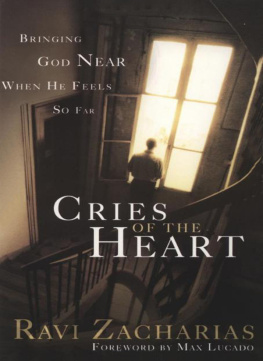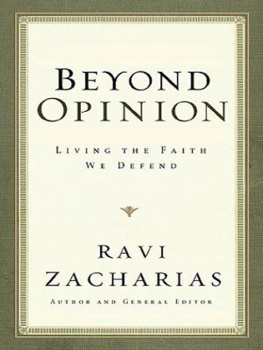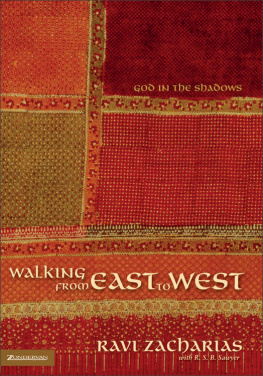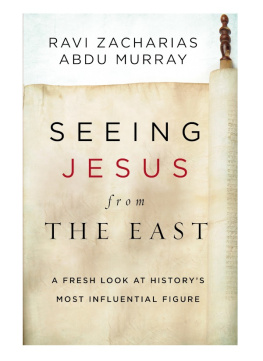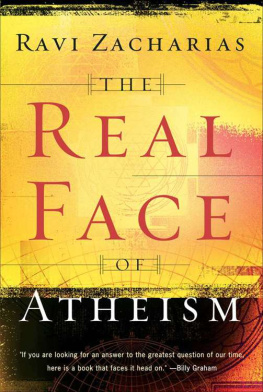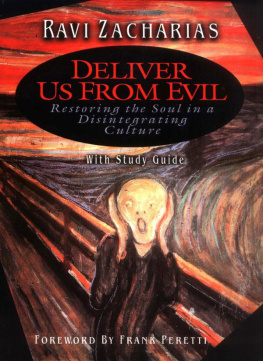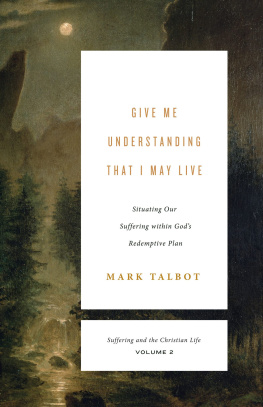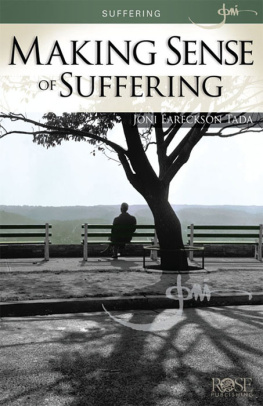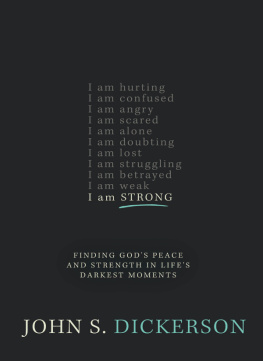Ravi Zacharias - Why Suffering?: Finding Meaning and Comfort When Life Doesnt Make Sense
Here you can read online Ravi Zacharias - Why Suffering?: Finding Meaning and Comfort When Life Doesnt Make Sense full text of the book (entire story) in english for free. Download pdf and epub, get meaning, cover and reviews about this ebook. year: 2014, publisher: FaithWords, genre: Religion. Description of the work, (preface) as well as reviews are available. Best literature library LitArk.com created for fans of good reading and offers a wide selection of genres:
Romance novel
Science fiction
Adventure
Detective
Science
History
Home and family
Prose
Art
Politics
Computer
Non-fiction
Religion
Business
Children
Humor
Choose a favorite category and find really read worthwhile books. Enjoy immersion in the world of imagination, feel the emotions of the characters or learn something new for yourself, make an fascinating discovery.

- Book:Why Suffering?: Finding Meaning and Comfort When Life Doesnt Make Sense
- Author:
- Publisher:FaithWords
- Genre:
- Year:2014
- Rating:3 / 5
- Favourites:Add to favourites
- Your mark:
- 60
- 1
- 2
- 3
- 4
- 5
Why Suffering?: Finding Meaning and Comfort When Life Doesnt Make Sense: summary, description and annotation
We offer to read an annotation, description, summary or preface (depends on what the author of the book "Why Suffering?: Finding Meaning and Comfort When Life Doesnt Make Sense" wrote himself). If you haven't found the necessary information about the book — write in the comments, we will try to find it.
Why Suffering?: Finding Meaning and Comfort When Life Doesnt Make Sense — read online for free the complete book (whole text) full work
Below is the text of the book, divided by pages. System saving the place of the last page read, allows you to conveniently read the book "Why Suffering?: Finding Meaning and Comfort When Life Doesnt Make Sense" online for free, without having to search again every time where you left off. Put a bookmark, and you can go to the page where you finished reading at any time.
Font size:
Interval:
Bookmark:

In accordance with the U.S. Copyright Act of 1976, the scanning, uploading, and electronic sharing of any part of this book without the permission of the publisher constitute unlawful piracy and theft of the authors intellectual property. If you would like to use material from the book (other than for review purposes), prior written permission must be obtained by contacting the publisher at permissions@hbgusa.com. Thank you for your support of the authors rights.
Ravi Zacharias: To James Riady and Mo Anderson: two very dear friendsbrilliant in what they do, generous in how they give, candid in the failures through which they have come, committed totally to Jesus Christ whom they love and serve. I am most grateful for their love and friendship.
Vince Vitale: To Carla and Vincent Vitalea mother with the strength to always see the good, a father with the courage to seek God in the bad, parents who in their love for me taught me to ground my life in a love that sacrifices for others. With love and gratitude beyond words, your son Vince

I grew up in a neighborhood in New Delhi, India, where communities defined friendships. Houses were close to one another, we played together with the neighborhood kids, and we often crossed one anothers front or back yards on our way to the store or to school. It happened to be government employee housing, and so all the homes were identical inside and out. Our parents were all friends, and meals were often shared in each others homes. There was never an issue of finding babysitters because either the servants in the house or the neighbors were there to meet the need. We knew one anothers pay scale and place in society.
We also knew our neighbors hurts. The pains that each bore were, in effect, community knowledge. I had a close friend who lived about six doors down, no more than a three-minute walk. Often I would cross his backyard as a shortcut to go to the neighborhood convenience store. His father was a good friend to my dad. When I was about fifteen years old, I remember a scene that bothered me a lot but that I never quite understood. Each time I would cross my friends yard, I could hear his father sobbing uncontrollably, muttering away some words of plea for hope. His wife would be there, sitting on the bed beside him, just stroking his back, oftentimes with tears running down her face.
I wondered what this was about, considering it was a common scene and an obviously disconcerting situation. I asked my friends what had happened and was told hed had a nervous breakdown. I had no clue what that was. I asked my mother to explain it. Knowing why I was asking, she simply said, Something terrible must have happened and this man no longer has the ability to face life. His constant crying shows he cannot control the pain in his heart and the tears from his eyes.
I was quite young but was jolted on the inside: One could reach a stage where they could no longer control the pain in their heart and the tears from their eyes?
I thought about that often. Certainly, pain was a reality. I could not even get to the convenience store without having to admit that. The only difference seemed to be who controlled and faced it better, and why. How does one endure grief and pain? How does one manage it in life? Where do we go for answers when we suffer ourselves or when we see those we love suffering?
A Babys Funeral is an essay by one of my favorite authors, the Englishman F. W. Boreham. He tells of a time as a younger minister when he looked out his window and saw an anxious woman walking back and forth in front of his home, but never quite making it to the doorway. So he stepped outside and asked if he could help her. She said she needed help from a minister, and asked if she could step in for a few minutes. So he ushered her in and she sat in his study looking terribly nervous and tongue-tied. She finally spoke up: I have a newborn baby that has just died. I need a minister to perform the funeral.
Boreham asked several questions, took down the details, and said he would help in any way he could. She left and plans were made for the burial a couple of days from then. Boreham and his wife left after that conversation for a picnic that they had planned. But he couldnt get the womans story out of his mind and said to his wife, Something is not right. Her story just doesnt add up. They headed back home at dusk, and to their surprise, the woman was still pacing outside their home waiting for them to return. They invited her in.
I have not told you the whole truth, she said. Actually this baby was born illegitimately and deformed. She didnt live very long. I just want to give her an honorable burial with just her name on the stone. Boreham was deeply moved and the funeral was planned.
They arrived at the cemetery and he was surprised to find that nobody had been buried there before. It was pouring rain, and he and his wife, with this woman and the baby in a small casket, were all who were present at the burial. An illegitimate child, deformed, the first in a cemetery, under pouring rainthat was the funeral at which he officiated.
Years later Boreham took a train journey with a veteran bishop who was making stops to meet the pastors of small churches in the towns along the route. Boreham would stay a little distance away to let the bishop have some private time with these ministers. It was obvious that they were sharing the stories and challenges of ministering to people in their respective congregations. Boreham remembered well the closing words of the bishop in each instance: Just be there for them just be there for them in their need.
As he journeyed back that day, Borehams thoughts returned to the woman with her baby. Years had gone by since that funeral, but every Sunday he could be certain of one face in his congregation. It was that woman. The first time he met her, her face was tearstained and her eyes fearful. As the years went by, the tears were wiped away and the eyes spoke of belonging to a message and a hope and a people that carried her through.
Seldom in one life do all forms of agony convergea moral struggle, a heartbreak of grief, a little one at the heart of the story, the ultimate desolation of being buried in an empty cemetery, nature pouring its tears in a pounding rain, and yet the words of Scripture, the caring heart of a minister, and the years of belonging to a loving community all coming together in one life. What cradles a heart when such griefs converge? Somewhere in the community of those who have set their hope upon God, this woman found comfort and meaning amid the hardest question she ever had to face: Why suffering?
In each chapter of this book, my colleague Vince Vitale or I will outline a different response to this enormous question. Some of the chapters will take a fresh look at an ancient response. Others will propose new responses for your consideration. The responses are of course deeply related, but by looking at them separately we hope to show that the resources of the Christian community for approaching this ever-present challenge are both richer and more numerous than typically assumed.
Before we get to responses, though, I want to linger on the questionto hear it, to frame it, and to ask what it presupposes about who we are. This brings the question of suffering to a felt reality and, if properly addressed, gives us the prospect of hope. As for the intellectual side of this debate, I promise I will get to it. But first I would like to focus on where the darkness of evil and suffering hovers most and where the first glimmer of light may shine.
Font size:
Interval:
Bookmark:
Similar books «Why Suffering?: Finding Meaning and Comfort When Life Doesnt Make Sense»
Look at similar books to Why Suffering?: Finding Meaning and Comfort When Life Doesnt Make Sense. We have selected literature similar in name and meaning in the hope of providing readers with more options to find new, interesting, not yet read works.
Discussion, reviews of the book Why Suffering?: Finding Meaning and Comfort When Life Doesnt Make Sense and just readers' own opinions. Leave your comments, write what you think about the work, its meaning or the main characters. Specify what exactly you liked and what you didn't like, and why you think so.

